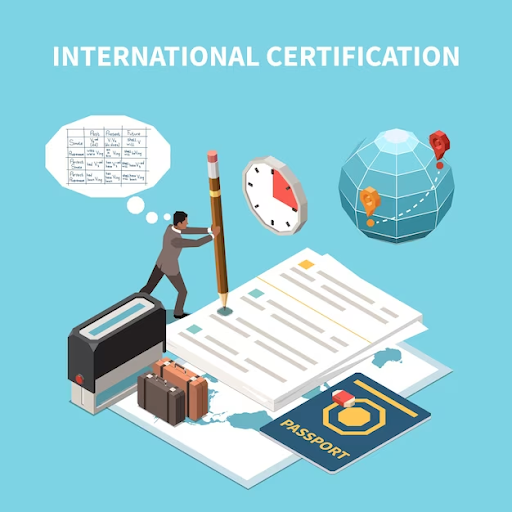Interior Design Courses in Dubai: Fees and More
Interior design is a versatile field that combines creativity, technical skills, and business knowledge. Especially in a city as iconic as Dubai, where architectural and interior design marvels abound, pursuing an Interior Design course can prove to be a highly rewarding choice. Dubbed ‘the design capital of the Middle East,’ Dubai offers ample opportunities for interior design jobs. More so, if you have a qualification in interior designing from one of the esteemed institutes in the city. This article provides clear insights about the various interior designing courses in Dubai, their fee structures, and the rewarding career opportunities that await you in this industry.
Overview of Interior Design Industry in Dubai
The Interior Design Industry in Dubai flourishes not just due to its cultural richness but also due to the continuous demand generated by its thriving real estate sector. Regarded for its ambitious building projects and world-class luxury, Dubai provides numerous opportunities for aspiring interior designers. By stepping into this industry, you dive into a world of creativity and designing, turning empty spaces into functional, beautiful corners. This is facilitated by the numerous interior designing companies that are ever-ready to hire fresh talent.
Benefits of Pursuing Interior Design Courses in Dubai
- International Exposure: Studying in a cosmopolitan city like Dubai gives international exposure to students, allowing them to understand various cultural influences in design.
- Career Opportunities: As a booming real estate hub, Dubai has a plethora of opportunities for interior designers with an increasing demand for interior design Dubai jobs.
- Industry Connections: Networking is a significant part of this industry. Studying in Dubai provides numerous opportunities to create valuable industry connections with established interior designing companies.
- High Standard of Education: Dubai hosts several top-ranked universities that provide high-quality education.
- Innovation and Inspiration: Being exposed to Dubai’s innovative architecture and interior spaces can be highly inspiring for budding interior designers. Witnessing the works of leading interior companies in UAE becomes an additional learning experience.

Understanding The Interior Design Courses
Below table provides a snapshot of the popular interior design courses offered in Dubai. It is recommended to choose a course that matches your career goals and the kind of job profiles offered by the interior designing companies in Dubai.
| Course Name | Duration | Approximate Fees |
|---|---|---|
| Diploma in Interior Design | 1 year | AED 50,000 |
| Bachelors in Interior Design | 3-4 years | AED 200,000 |
| Masters in Interior Design | 2 years | AED 100,000 |
List of Interior Design Courses Available in Dubai
There are several courses available in Dubai catering to different skill levels:
- Diploma in Interior Design: This is an entry-level course that lays a strong foundation in interior design principles.
- Bachelors in Interior Design: This degree course offers an in-depth understanding and knowledge of interior design.
- Masters in Interior Design: This course is designed for professionals wanting to specialize in a certain area of interior design.
Each course has a unique curriculum, with modules focusing on different aspects of interior design. From the basics of design and drawing to advanced computer-aided design (CAD), these courses cover a comprehensive range of topics to shape you into a skilled designer desired by the top interior company in UAE.
Please note, the information regarding each course and its fees is approximate and may vary based on various factors.
(First half only, the next part will focus on the details about each course, fee structure, and career opportunities in interior design Dubai jobs. The relevance and applicability of the courses with respect to the demand of the interior designing company will also be discussed in detail.)
Detail about Each Course
Taking a deeper look into each course:
- Diploma in Interior Design: This course is intended for students who are new to the field of interior design. It covers subjects like visual aesthetics, space planning, color theory, and basic software tools required in interior design. It’s suitable for students looking to gain a basic understanding of the field and to secure entry-level positions in interior designing companies in Dubai.
- Bachelors in Interior Design: A more comprehensive program, this course digs deep into not just the principles of interior design, but also aspects like architectural history, project management, and sustainability in design. It provides hands-on experience, and students get to work on real projects, equipping them for interior design Dubai jobs.
- Masters in Interior Design: This focused course allows students to delve deep into a specialized area of interior design, be it commercial, residential, or landscape design. It sharpens the technical and creative skills of the students and prepares them to take on leadership roles in any interior company in UAE.

Fees Structure of Interior Design Courses in Dubai
Understanding the financial standpoint is crucial in your decision-making process. In Dubai, the fees for interior designing courses can range from AED 20,000 to AED 200,000 depending on the level and quality of the course. The factors influencing these fees include:
- Course Duration: Longer the course duration, higher is the fee.
- Institution Reputation: Renowned institutions may charge higher fees owing to their brand name and standard of teaching.
- Course Details: In-depth courses that offer hands-on experience, study materials, and student support services typically cost more.
However, you should not let the fees discourage you, as there are several ways to manage your course fees. These include scholarships, educational loans, part-time jobs, and internships that many institutions and companies offer.
Scholarship Opportunities and Financial Aid
Scholarships can significantly lower your financial burdens. Many interior designing institutes in Dubai offer scholarships based on your academic or creative merit. You can also explore externally funded scholarships for international students. Make sure to research early, understand the eligibility requirements, and apply accordingly.
Career Opportunities after Interior Design Courses
After completion of any of these courses, you could find your place in various interior design Dubai jobs such as Retail Designer, Exhibition Designer, Architectural Technologist, and Spatial Designer, to name a few. Simultaneously, there are opportunities to work with renowned interior designing companies or even start your own interior company in UAE.

In a nutshell
In conclusion, an investment in an interior design course in Dubai can open up exciting professional paths. With the knowledge about the fee structure and the career possibilities, you’re now equipped to make an informed decision.
Frequently Asked Questions (FAQs)
1. Q: Are there part-time interior design courses in Dubai?
A: Yes, many institutions offer part-time and online interior design courses accommodating working professionals and students with other commitments.
2. Q: Is the field of interior design in demand in Dubai?
A: Absolutely. Given the ongoing development in the real estate sector and Dubai’s reputation for luxury, the demand for skilled interior designers is high.
3. Q: What are the payment options for course fees?
A: Most institutions offer varied payment options including lump-sum payment, installment plans, or education loans.
4. Q: Can I work while studying the interior design course?
A: Yes, many students take up part-time jobs or internships related to their course to support their living and tuition costs.
5. Q: What skills are most sought after in an interior designer in Dubai?
A: Apart from solid knowledge of design principles, other sought-after skills include excellent communication, understanding of cultural aesthetics, proficiency in design tools, and a creativity mindset.






